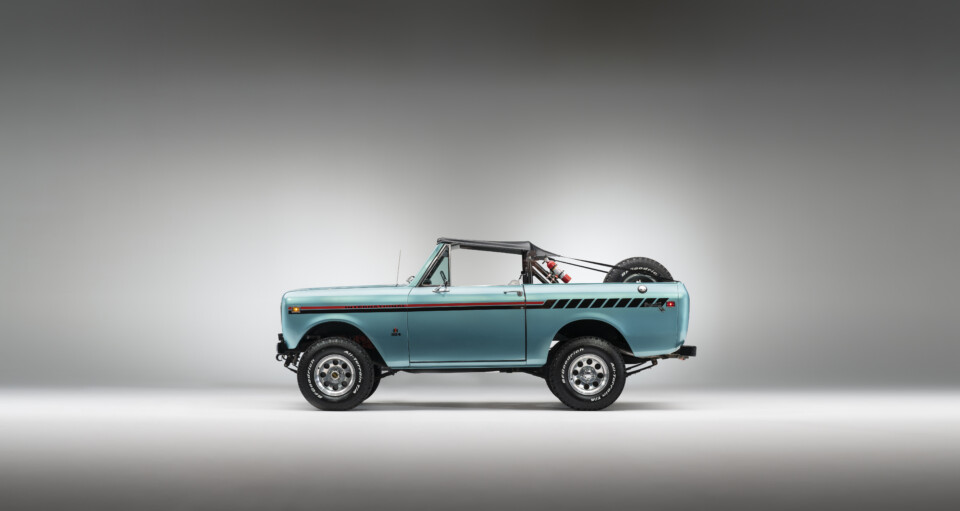Scout Motors, a company backed by Volkswagen, is set to challenge the traditional automotive sales model by selling its electric vehicles (EVs) directly to consumers, eliminating the middleman—dealerships. This strategic move aligns with a growing trend in the industry, as companies like Tesla and Rivian have also adopted direct sales approaches. However, Scout’s plan is particularly notable because it is doing so with the backing of an established automaker, Volkswagen.
A New Vision for Vehicle Sales
Scout Motors envisions a radically different car-buying experience, one that prioritizes transparency, speed, and ease. According to Scout’s CEO, Scott Keogh, the aim is to create a buying process that is “transparent, super fast, and super easy.” This vision comes in response to widespread dissatisfaction with the traditional dealership experience, which many consumers find tedious and frustrating.
Recent research highlights that the average car-buying process can take more than 13 hours. Furthermore, only 8% of consumers report high trust in dealerships, which results in more than 180,000 complaints to the Federal Trade Commission each year. Many customers prefer independent service providers due to concerns about overcharging and delays, indicating a significant gap in consumer satisfaction with the current dealership model.
Digital-First Approach
To achieve its goals, Scout is building a robust digital platform that will facilitate the entire purchasing process online. This clean-sheet approach means that Scout doesn’t carry the legacy burdens associated with traditional automakers. According to Cody Thacker, Scout’s VP of Growth, the company continuously asks itself, “If an OEM could start over again, what would they do differently?” This question drives the company’s innovative strategies in car sales.
The platform will enable consumers to handle all aspects of their car-buying journey online, from purchasing accessories to scheduling service appointments, all without the need for in-person interactions at a dealership. While traditional dealerships often lead to hidden fees and convoluted pricing, Scout aims to create a direct sales model that allows for clear, upfront pricing. Thacker believes that this model can effectively address common frustrations associated with car buying.
Physical Locations: Scout Workshops and Studios
While Scout is focusing on a digital-first approach, it also recognizes the value of physical locations. The company plans to open 25 “Scout Workshops” and “Scout Studios” across the United States in the next five years. These venues will allow consumers to test-drive vehicles and engage with the brand in a welcoming environment.
The design of these workshops aims to create a sense of transparency and openness, featuring visible work bays where customers can observe service processes while enjoying amenities like coffee. Scout Studios will function similarly to Tesla’s showrooms, acting as marketing and sales spaces without the pressure of a traditional dealership environment.
The Data Advantage
A significant factor driving Scout’s decision to eliminate dealerships is the desire to control customer data. In the current model, dealerships manage most customer relationships and data, including financing. Scout believes that by implementing a direct sales approach, it can gain a comprehensive understanding of customer preferences and behaviors. Thacker emphasizes that this control allows the company to influence the customer journey and develop insights that can enhance overall business intelligence.
Industry Resistance and Legal Challenges
Despite its innovative approach, Scout is prepared for pushback from the entrenched dealership network. Following the announcement of its direct sales model, the National Automobile Dealers Association (NADA) indicated that it would challenge Scout’s approach in courts and legislative bodies across the country. The longstanding dealership model, which evolved in the early 20th century, has created a powerful lobbying force that is likely to resist any attempts to undermine its control over vehicle sales.
Moreover, the connection to Volkswagen complicates matters, as many VW dealers have been anticipating a truck launch to capitalize on the growing EV market. Ironically, some of these dealers have expressed skepticism about the viability of electric vehicles, raising questions about their commitment to embracing the future of transportation.
The Path Ahead
As Scout Motors prepares to launch its new vehicles, including the Scout Traveler SUV and the Scout Terra truck, it remains focused on its customer-first vision. The company is currently opening online reservations for these models but is still finalizing details related to financing options. Thacker has stated that they aim to provide a seamless purchasing experience, potentially leveraging Volkswagen’s extensive financial resources for customer financing.
Scott Keogh, the CEO, remains confident in Scout’s direct sales model, emphasizing the importance of building trust with consumers. He asserts that Scout aims to create a brand synonymous with data trust and customer confidence, addressing the apprehensions many consumers have towards traditional dealerships.
Conclusion
Scout Motors represents a bold step toward redefining the automotive sales landscape. By prioritizing a direct-to-consumer approach, the company seeks to enhance the car-buying experience, address longstanding consumer frustrations, and control valuable customer data. As it navigates the challenges posed by the existing dealership network, Scout’s innovative strategies could signal a significant shift in how vehicles are sold in the future. The company’s commitment to transparency and customer satisfaction may resonate well with consumers, setting a new standard in the automotive industry.
